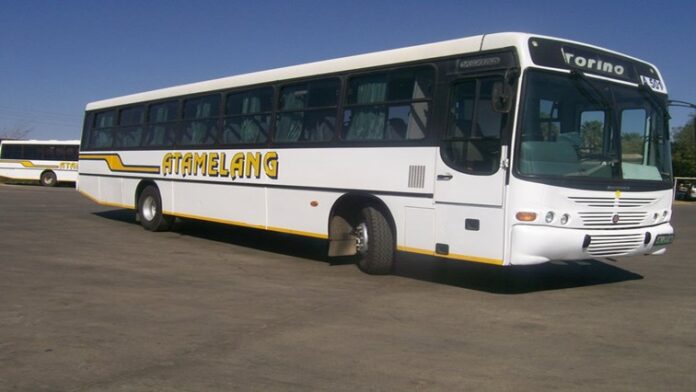A forensic audit of the North West province’s public transport sector has revealed what appears to be a tangled web of corruption, collusion and incompetence that is putting thousands of lives at daily risk, while those entrusted to protect them seem more concerned with lucrative contracts than safety.
Mahikeng’s Atamelang Bus Transport was once a mainstay of public transport in the region, but a recent forensic audit, along with damning affidavits submitted to the high court, has revealed systemic rot – a situation in which the collapse of Atamelang was anything but accidental.
This was not just about poor service; but about safety warned Mahomed Mahier Tayob, Atamelang’s business rescue practitioner (BRP) in papers filed in the Mahikeng high court.
Tayob details how unroadworthy and unreliable buses are being unleashed onto North West roads. He described the buses being used as unroadworthy, suggesting that the consequences could be catastrophic.
The forensic report, commissioned by the North West Treasury and attached to Tayob’s High Court affidavit, is a chronicle of dysfunction.
Operators appointed to replace Atamelang – such as Amarosa Trading and Sunset Africa Coach Lines – were awarded contracts despite concerns about their fleet capacities, roadworthiness and documentation.
In the case of Amarosa Trading, the court head that its fleet of 182 buses was already stretched thin, servicing distant districts like Bojanala and Dr Ruth Segomotso Mompati. Yet, the company was tasked with expanding to Mahikeng, all without clear evidence of any additional, roadworthy vehicles.
The court was warned that this could lead to unsafe and unreliable transport, putting commuters in danger.
According to court submissions, the Department of Community Safety and Transport Management failed to verify the roadworthiness of buses during the tender process.
“Sunset Africa Coach Lines also presented a banking confirmation letter which the report views, prima facie, may not be authentic,” Tayob writes.
Other discrepancies are just as alarming: questionable certificates for fare validation and collection equipment raise further doubts about these operators’ compliance with even the most basic safety standards.
The court heard that these buses were not fit for the road, according to Tayob, indicating that the department’s failure to conduct proper inspections is putting lives at risk in a public transport sector that was a magnet for political interference and corruption.
The forensic audit supports Tayob‘s claim, noting that the tender process favoured certain operators despite glaring deficiencies.
Tayob’s affidavit, bolstered by the forensic “Nel Report”, makes a chilling allegation: the collapse of Atamelang Bus Transport was a calculated campaign to dislodge the company and clear the way for favoured operators.
The report found that the collapse of Atamelang was designed to dislodge the company and pave the way for other operators to take over lucrative contracts.
According to Tayob’s submission, operators who undermined Atamelang are the very ones now reaping the rewards.
“Atamelang has and still intends to tender its services which the department has previously refused despite the existence of a contract only set to apse in March 2026,” Tayob said.
The “Nel Report” details further irregularities, such as the appointment of Amarosa Trading despite doubts about its bus fleet and the acceptance of higher prices than those offered by Atamelang.




